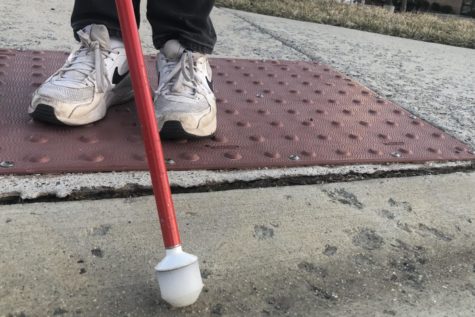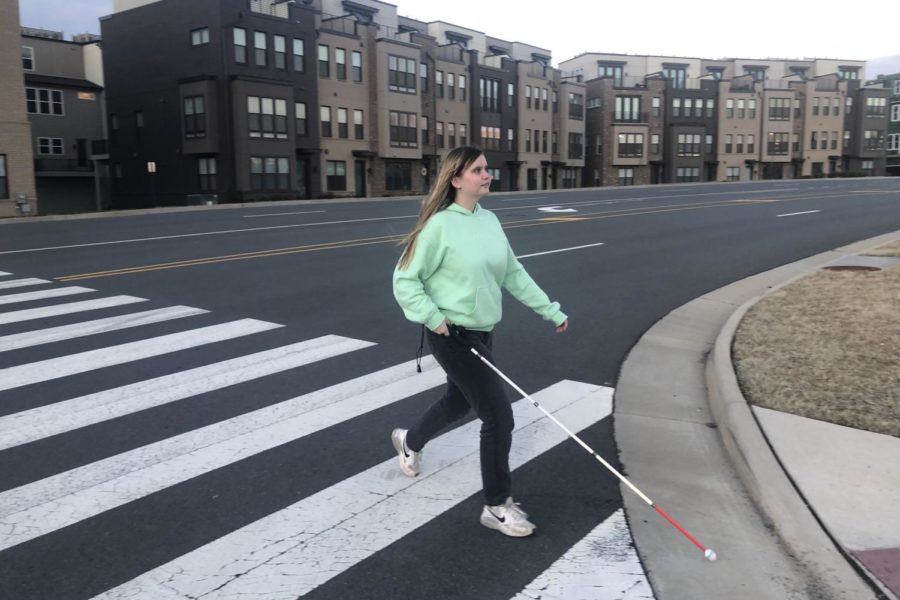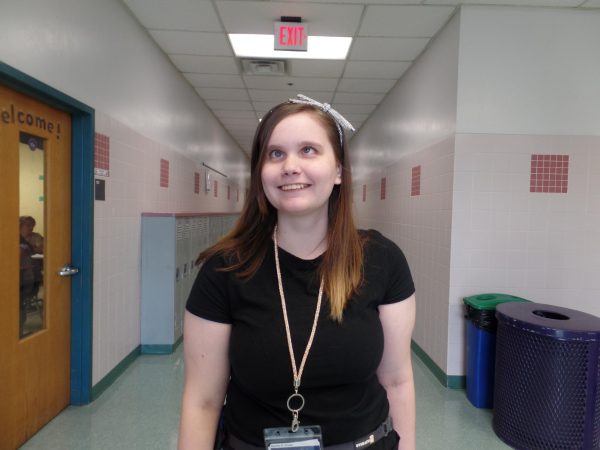Call me what I am: When the uneducated become unkind
Used with permission of Maura Brooks
Freshman Delaney Brooks and other blind pedestrians use sound from passing cars to determine when to cross the street and what direction to walk in.
March 5, 2022
As I fidget with the elastic on my white cane, I’m often tentatively questioned about my “vision problem,” “situation” or “challenges.” I know what people are trying to hint at—they’re curious about my blindness and that’s totally okay. However, the way some people tiptoe around the “B word” as if it’s offensive to say, affects me sometimes.
I’ve noticed that the friends and teachers I have who aren’t afraid to call me blind seem more comfortable with my circumstance than those who don’t. People who avoid the words “blind” or “disabled” tend to need more encouragement to become comfortable helping me when I need it.
The words “differently abled” or “special needs” have become red flags of sorts for me, not only because I don’t enjoy being called those things, but also because it normally means there’s a long way to go before a blind joke will be well-received or I can be guided without near-constant reminders of how nervous the person is to have me on their arm.

Though their intentions are polite, avoiding the actual name of my disability feels demeaning. Calling me “differently abled” or “special needs” implies pity and can make me and most others with disabilities feel spoken down to. Words like these are embarrassing and sometimes inaccurately portray us.
“Differently abled” is a phrase which implies that though I don’t have the abilities most people do, I have others that make up for what I don’t have. Technically, yes, I do have different abilities to cope with my lack of vision, but so does everyone else. It implies that my ability to use passive echolocation or read braille makes up for my blindness, which is completely untrue. We all have our own set of skills but we aren’t all “differently abled.”
Refusal to call me what I am shows a person’s discomfort with my disability and sends the message that my blindness should make others uncomfortable. The world is inherently an inaccessible place for the blind, and struggling to find braille signage or needing a sighted person’s help to tip the barista at Starbucks makes me feel emotionally tired and like a burden. Hearing others tiptoe around my blindness and fail to even utter the word makes a bad situation even worse.
When a person I’m speaking with uses the correct terms like “blind” or “visually impaired,” they show me that they’re comfortable with my disability and it doesn’t intimidate them. The scientific term is the correct one and they know that. I often internally celebrate when I meet someone who isn’t afraid to call me what I am because it feels so good to be seen.





Katherine Craddock • Mar 7, 2022 at 1:05 pm
Love this! Very helpful. Intriguing article title, too.
Mary Kay Downes • Mar 6, 2022 at 10:43 am
Excellent article! Should be required reading! Labels matter and many of them are not only insensitive but fallacious!